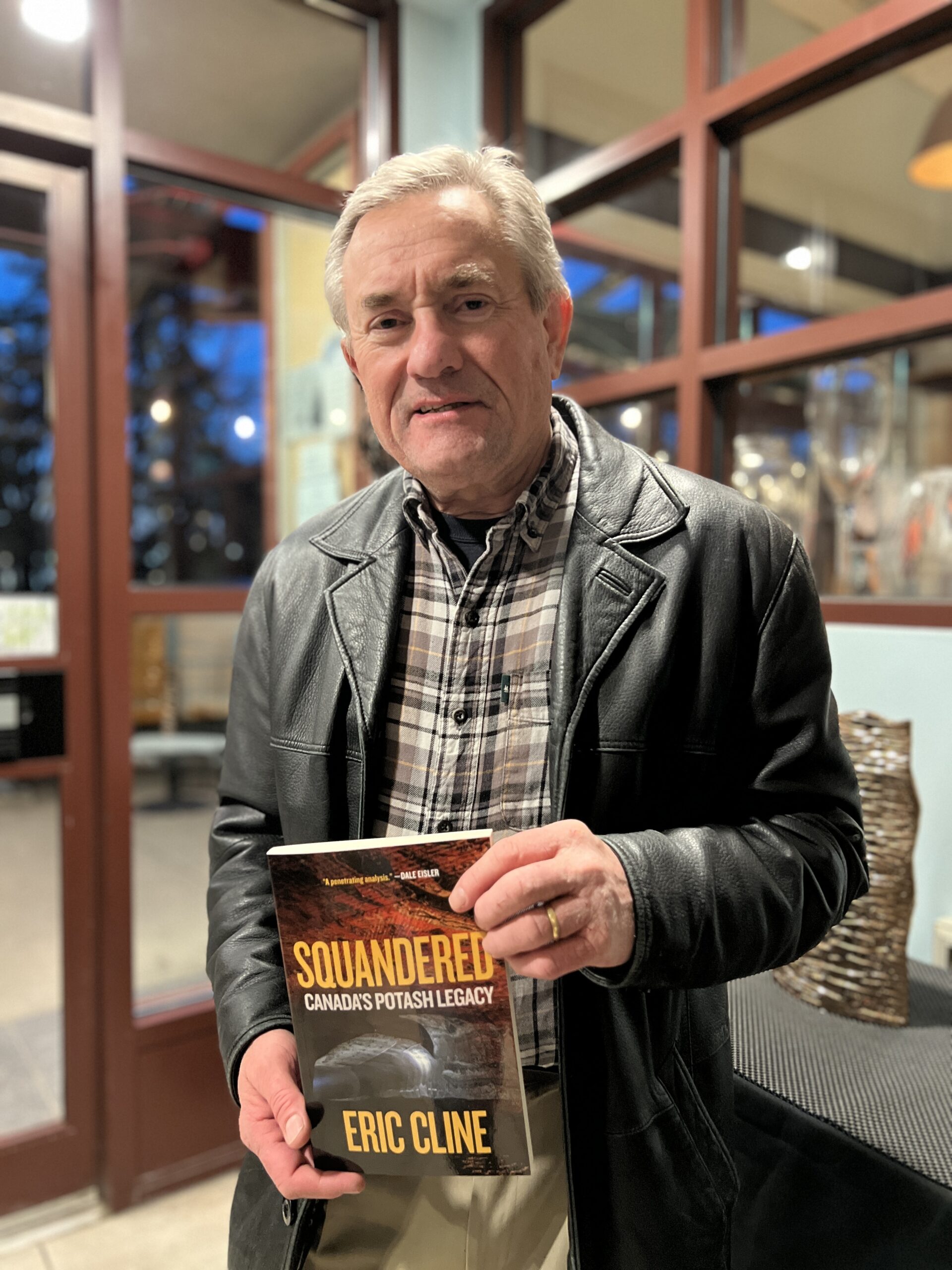Eric Cline’s Squandered: Canada’s Potash Legacy: Windfall profits, economic rent and paying for social services, Part 3
This is where Cline shows his true socialist character, as a self-described socialist.
Eric Cline’s Squandered: Canada’s Potash Legacy: Windfall profits, economic rent and paying for social services, Part 3
This is where Cline shows his true socialist character, as a self-described socialist.
Brian Crossman: Finally, the Official Pipeline Online Landman Review
Also:
Eric Cline’s Squandered: Canada’s Potash Legacy: About that royalty review … Part 2

It’s not often we have meaningful discussions on royalties in this province, so I’m giving it a major effort. Some think we should never touch royalties, ever. And the 2009 Stelmach experience in Alberta was telling. So is there ever a time to do it? What about for a new product, like lithium?
I FINALLY completed my vey detailed book review of Eric Cline’s book on potash royalties. Bronwyn Eyre and I discussed it with Eric last Monday for our inaugural Pipeline Online Podcast. The YouTube version is embedded in the story.
Eric Cline’s Squandered: Canada’s Potash Legacy, takes a hard look at royalties. Part 1 #saskatchewan
Jim Warren: How to govern while fiscally handcuffed: don’t follow the example of the Romanow NDP
You don’t see that very often – Saskatchewan’s wind power averaged 89% output on Jan. 24. And it hit 88% the next day.
The Pipeline Online Podcast launches Jan. 20, with Brian Zinchuk and Bronwyn Eyre as co-hosts. The inaugural guest will be former Saskatchewan Minister of Finance, as well as Minister of Industry and Resources Eric Cline re his book Squandered: Canada’s Potash Legacy, and dig deep into royalties. Should they ever be changed, not just for potash, but oil and other commodities?
My cohost, Bronwyn Eyre, is former Saskatchewan Attorney General and Minister of Justice. But more significantly, she was Minister of Energy and Resources for four years. She’s been in the room where it happened, so to speak.
Assuming everything works, you should be able to watch it live at 1 p.m., Saskatchewan time, on:
It will be recorded and posted to YouTube, Apple Podcasts, Spotify and more, where you will be able to subscribe and follow on your favourite podcast app.
The plan is to do this twice a month. It might not be a regular schedule, but we’ll do as best we can.
Also:
Cenovus, Vermilion and Whitecap sign on to support new Oil and Gas 20 and 30 high school courses

With Alberta going all-in on its sovereign wealth fund (posted yesterday), should Saskatchewan take another look at one of its own? We had one, but it didn’t last long, and turned into something of a slush fund for Crown corporations, apparently. I dug up this discussion paper that was written by U of R professor Stuart Wilson which is actually pretty good. I republished the entire paper, with his permission, on Pipeline Online.
Perhaps ironically, Norway’s massive sovereign wealth fund was originally modelled on Alberta’s. And that fund is now worth US$1.42 trillion dollars (with a “t”). (Norway has less oil than Alberta).
It turns out that carbon dioxide-enhanced oil recovery is more significant than even I thought, and I’ve been writing about if for 15 years. It accounts for a huge number of the top 100 conventional oil wells in Saskatchewan. Huge. And it proves out the significance and importance of CO2-EOR. Imagine what we could do across Saskatchewan with access to a lot more CO2? That’s going to have to be a column, methinks.
Also, oil is over US$90/barrel for the first time in quite a while. That’s going to be pretty important for Saskatchewan, as I was made aware today that potash prices have tanked. They are down by half year over year.